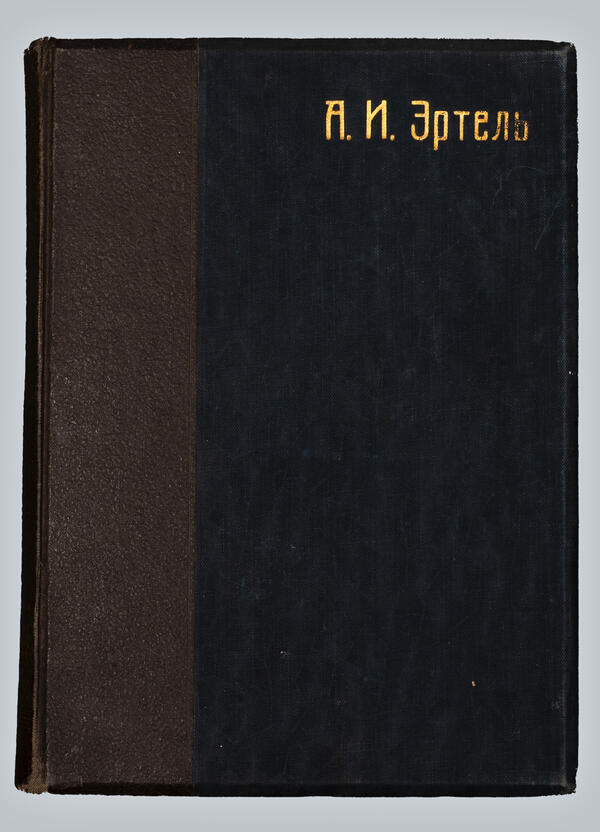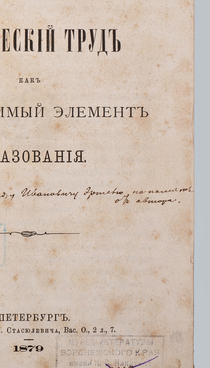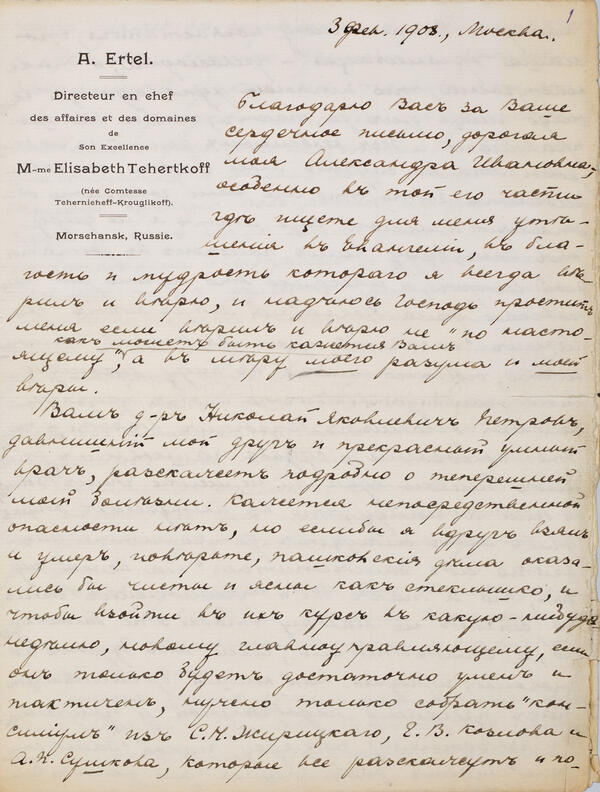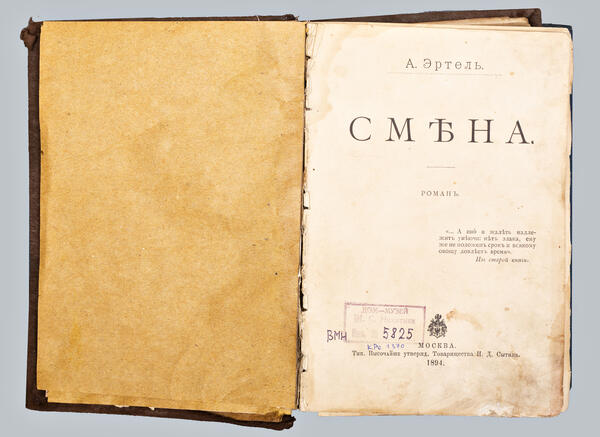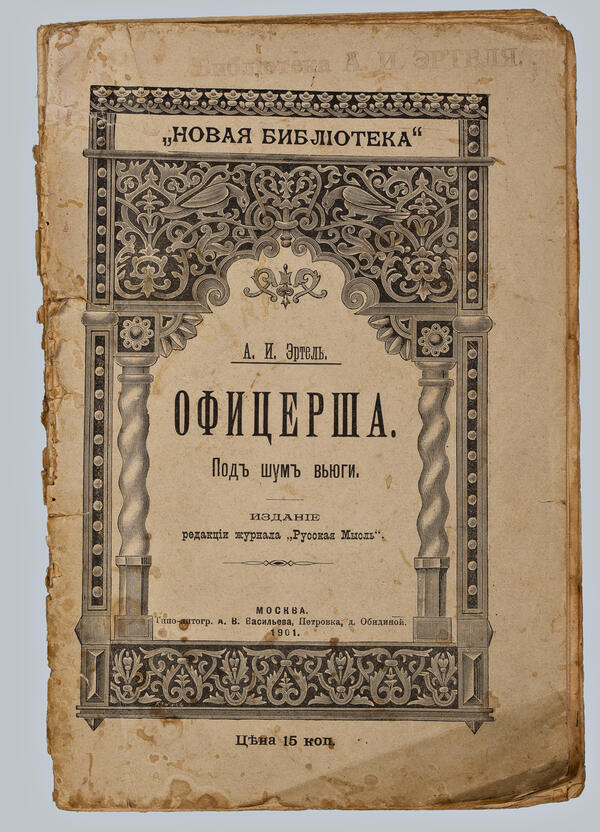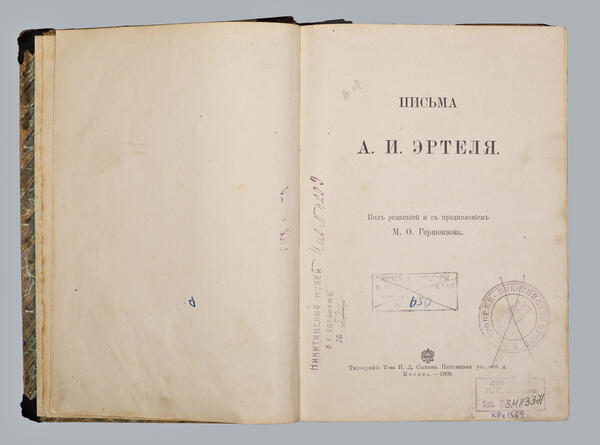In the last years of his life, Alexander Ivanovich Ertel withdrew from literature and was forgotten as a writer. After his death, the Moscow Book Publishing House issued a complete collection of the writer’s works.
The Moscow Book Publishing House was founded in 1907 by a representative of the Pallisen paper factories in Paris Gustav Alekseyevich Blumenberg and his son George Gustavovich Blumenberg, a retired cavalry officer. The publishing house cooperated with such prominent Russian writers as Ivan Alexeyevich Bunin, Alexander Ivanovich Kuprin, Boris Konstantinovich Zaytsev and Ivan Sergeyevich Shmelyov. It also published a popular reader’s digest called Zemlya (Earth).
Ertel’s collected works were edited by the literary historian and critic Fyodor Dmitriyevich Batyushkov. As a preface, he wrote a biographical sketch about the writer, which became the first deep and extensive analysis of his life and legacy.
Fyodor Batyushkov took a serious approach to editing this collection of works. Thus, knowing that Ertel’s last completed work of fiction “Strukov’s Career”, printed in Severny Vestnik, had been mercilessly censored and shortened, he turned to the writer’s widow: she kept the proofs of the version of the story that was published in the magazine, which preserved the places thrown out by the censor. The editor obtained these proofs and restored the author’s text just as Ertel had intended it.
The collection includes all of Ertel’s famous works of fiction — those that were printed in separate editions or published only in magazines. The first and second volumes are comprised of stories from the cycle “Notes of a Steppe-Dweller”, and the third volume includes the writer’s first novellas — “The Lady of Volkhonsk” and “Mineral Waters”.
The fourth volume includes the novellas “Two Couples” and “Strukov’s Career”, the drama “Women’s Revolt” and the story “A Greedy Peasant”, written by Ertel on Tolstoy’s advice to be published in the Posrednik publishing house.
The fifth and sixth volumes contain the writer’s most famous novel “The Gardenins; Their Retainers, Their Friends, and Their Enemies”. At the request of Ertel’s widow, Mariya Vasilyevna Ogarkova-Ertel, the preface to these volumes was written by Leo Tolstoy, who highly praised this novel back when Ertel was still alive.
The seventh volume includes the novel “The Change”, the novellas “Pyatikha’s Children” and “The Spitir Seers”, the stories “The Specialist”, “Raptures”, “A Conversation”, and the unfinished novella “At Twilight”. This edition remains the only complete collection of Alexander Ivanovich Ertel’s works.


